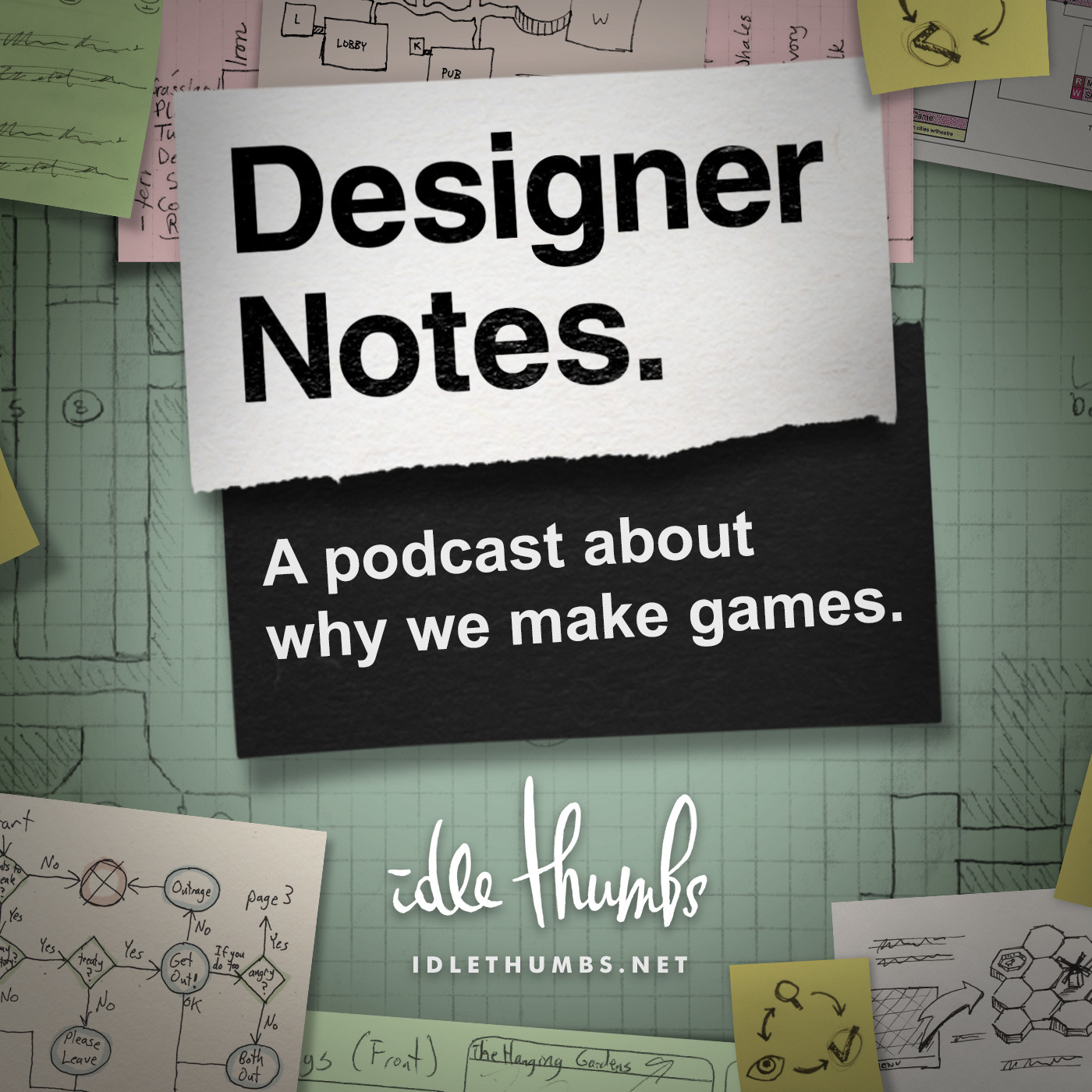

Designer Notes
Idle Thumbs
Why do we make games? Every designer has a different and very personal answer to that question. Soren Johnson, founder of Mohawk Games, sits down with noted designers to find out by examining their careers as a whole.
Episodes
Mentioned books

Oct 6, 2018 • 1h 47min
Designer Notes 42: David Sirlin - Part 2
David Sirlin, a veteran game designer known for his work on Super Street Fighter II Turbo HD Remix and Yomi, delves into game design principles and experiences in the industry. He discusses the balance of hit points in games, emphasizing how minimalism can enhance player experience. Sirlin shares insights on challenges faced in game development, including funding struggles and the competitive indie landscape. Additionally, he reflects on innovative mechanics in games like Puzzle Strike and Divekick, highlighting the importance of interaction and player engagement.

Aug 8, 2018 • 1h 60min
Designer Notes 41: David Sirlin - Part 1
David Sirlin, a veteran game designer known for his work on Super Street Fighter II Turbo HD Remix, shares his insights on game mechanics and design philosophies. He argues that more mechanics don’t necessarily equal deeper gameplay. The conversation amusingly veers into whether fighting games should include cake baking. Sirlin also candidly discusses why he didn’t design Street Fighter 4, reflecting on early gaming influences and the complexities of balancing competitive integrity with accessibility in game development.

Jun 22, 2018 • 1h 39min
Designer Notes 40: Brian Reynolds - Part 3
In this episode, Soren Johnson interviews veteran game designer Brian Reynolds, best known for his work on Colonization, Civilization 2, Alpha Centauri, and Rise of Nations. They discuss why Big Huge made Rise of Legends instead of Rise of Nations 2, why you shouldn’t let a company provide you with a computer, and how he cost Zynga $800K from a spreadsheet error.

May 16, 2018 • 2h 28min
Designer Notes 39: Brian Reynolds - Part 2
In this episode, Soren Johnson interviews veteran game designer Brian Reynolds, best known for his work on Colonization, Civilization 2, Alpha Centauri, and Rise of Nations. They discuss when Brian discovered Twilight Struggle, how Alpha Centauri influenced BioShock, and whether he could have made Rise of Nations at Firaxis.

Apr 24, 2018 • 1h 42min
Designer Notes 38: Brian Reynolds - Part 1
In this episode, Soren Johnson interviews veteran game designer Brian Reynolds, best know for his work on Colonization, Civilization 2, Alpha Centauri, and Rise of Nations. They discuss how his original dream job was to write compilers, all the bad decisions he needed to make to end up as a game designer, and his true feelings about the philosophy department at UC Berkley in the state of California.

Mar 12, 2018 • 1h 56min
Designer Notes 37: Chris Hecker - Part 2
In this episode, Soren Johnson interviews independent game developer Chris Hecker, best known for his work on Spore and SpyParty. They discuss accessibility versus depth, when SpyParty suddenly became fun, and why Chris Hecker ruined Spore.

Feb 21, 2018 • 2h 5min
Designer Notes 36: Chris Hecker - Part 1
In this episode, Soren Johnson interviews independent game developer Chris Hecker, best known for his work on Spore and SpyParty. They discuss why game jams are no longer necessary, why the first triangle is always the hardest, and whether Powers of Ten was a good idea for a game.

Jan 17, 2018 • 1h 20min
Designer Notes 35: Manveer Heir
In this episode, Adam Saltsman interviews independent game developer Manveer Heir, best known for his work on the Mass Effect franchise. They discuss the sunken cost fallacy and game development, why Mass Effect 3 would be a bad first game for a new developer, and when a game designer is like a baseball player and when it’s like a trauma surgeon.

Dec 7, 2017 • 2h 5min
Designer Notes 34: Tyler Sigman - Part 2
In this episode, Soren interviews independent game developer Tyler Sigman, best known as the designer of HOARD and Darkest Dungeon. They discuss how whether it makes sense to hide game data in the age of wikis, if Darkest Dungeon is too punishing or too forgiving, and what happened with the Corpse and Hound.

Nov 13, 2017 • 2h 19min
Designer Notes 33: Tyler Sigman - Part 1
In this episode, Soren interviews independent game developer Tyler Sigman, best known as the designer of HOARD and Darkest Dungeon. They discuss how his game design career was almost derailed by staplers, how a weird aeronautical engineer is a normal game designer, and why his finished air racing game was never released.


